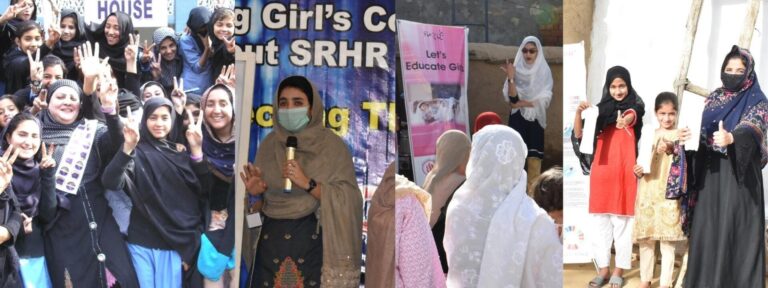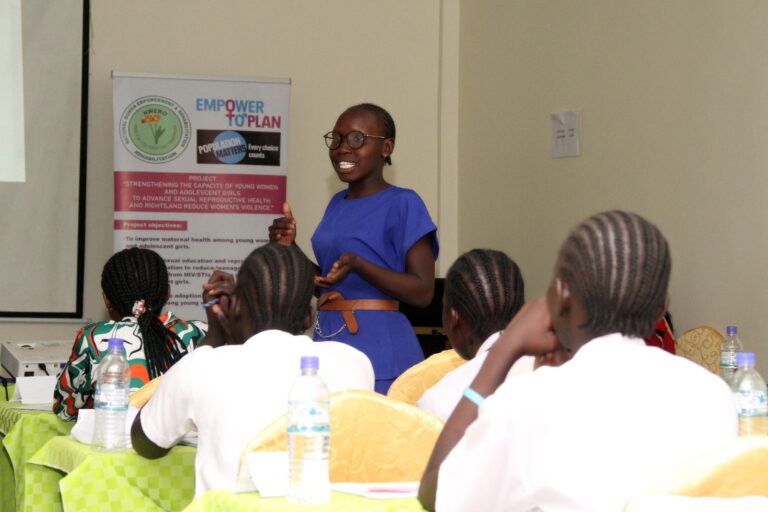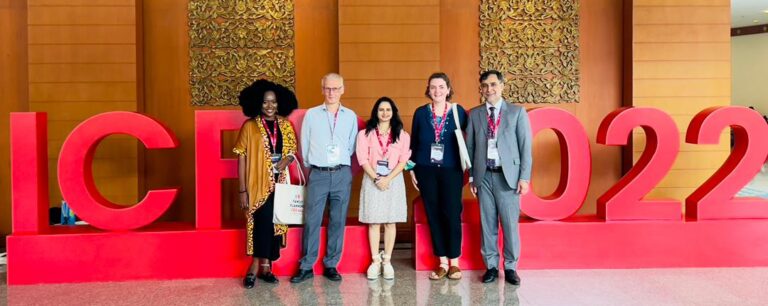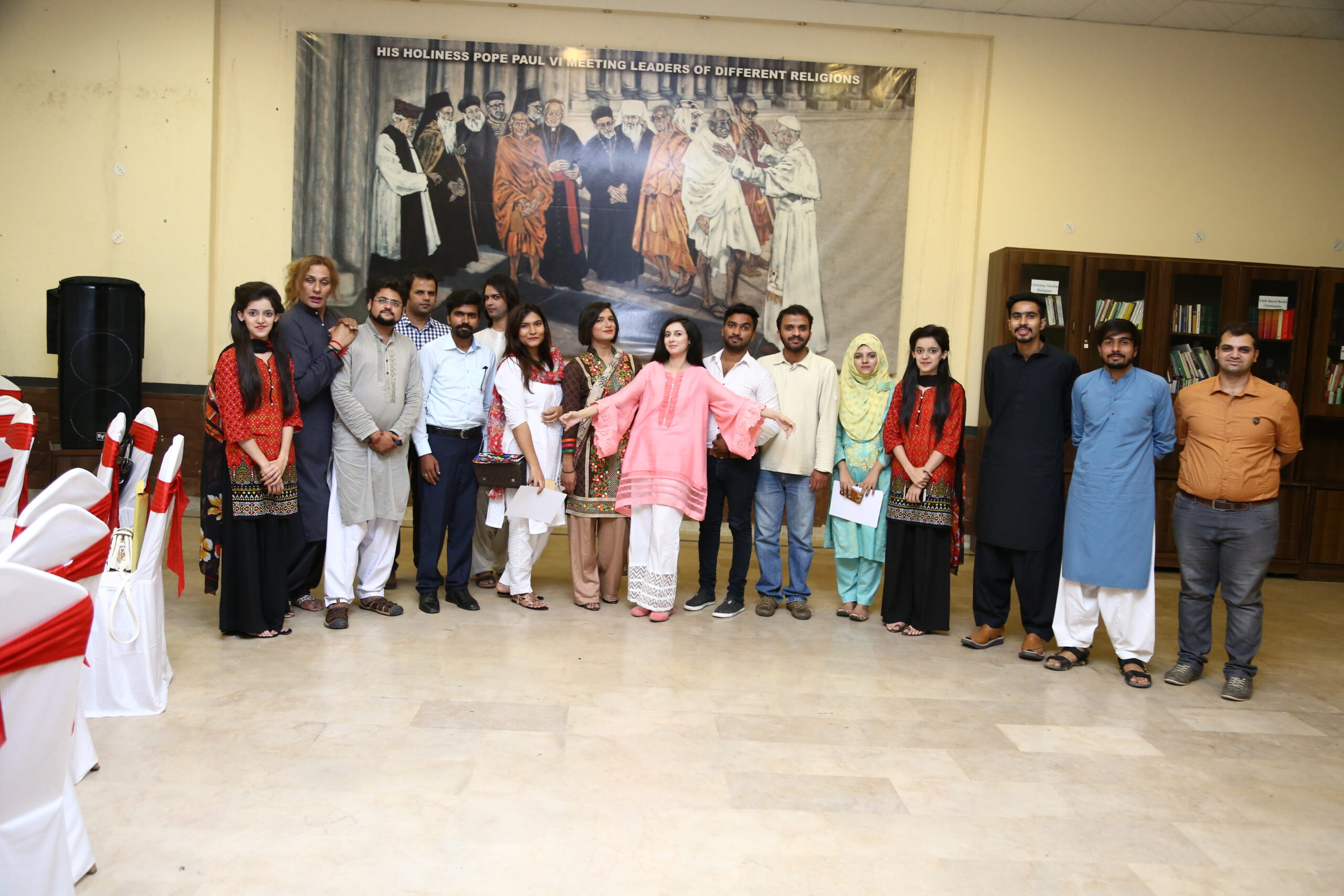
Breaking the Barriers: Empowering Pakistani Women
According to the United Nations Population Fund Pakistan, one in five women who want to avoid pregnancy is unable to access effective methods to do so. In this guest post, activist and family planning leader, Laraib Abid, writes about the issues faced by women in her country and the work she’s doing around health and access to family planning.
Women across the globe are subjected to gender discrimination in one way or another, and conditions for Pakistani women are no different. Growing up in Pakistan, I came across numerous socio-cultural, socio-economic and religious constraints, at the heart of which lie gender inequality, girls’ education and stigmas on talking about family planning and reproductive health.
Women are bound to live by the rules of society, and have no say in their own fundamental rights and body autonomy, let alone other important matters. I could never believe how the world’s fifth most populous country, with over 230 million people, is clenched with social norms, impacting women’s lives at large.
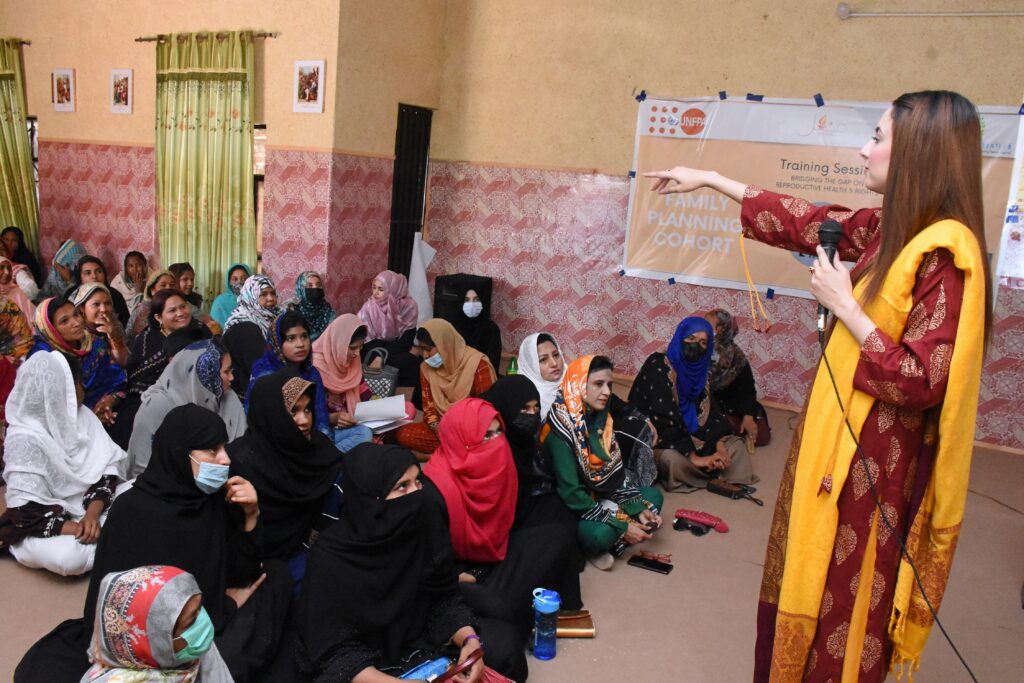
Fortunately, I was raised by an empowered woman and I was able to see the bigger issues other than the patriarchal mindsets. However, it’s only a few of us who are lucky enough to have got that education, knowledge and backing to break free from the stigmas, but many of my friends, my community members, and especially the rural population do not have the luxury to have access to their reproductive health and rights.
The urban women of Pakistan have to wait long hours at the clinics for consultation, while there are almost no family planning services available in the rural areas due to socio-cultural and religious dilemmas. Women, specifically in Pakistan, not only have this set of challenges, but undergo many others when it comes to accessing their reproductive health and rights, and making informed choices about their reproductive rights in addition to availing family planning services.
It was when my friend, from a metropolitan city, shared a concern about how she has no idea about contraceptive methods that I started doing more research on the issue, as she asked me about family planning services in Lahore. I was surprised that even after being a mother to two children she was unaware of any such information.
In the following days, I reflected on how rural or underprivileged couples have at least 10-12 children, while they can barely make ends meet. I recently came across a video where a woman from humble background told the interviewer that she had birthed 20 children. It’s saddening, and the children become victims of poverty and lack of access to basic necessities. A direct influence is child marriages among the uneducated group where the parents wed off their young girls in pursuit of not having to pay for their expenses anymore.
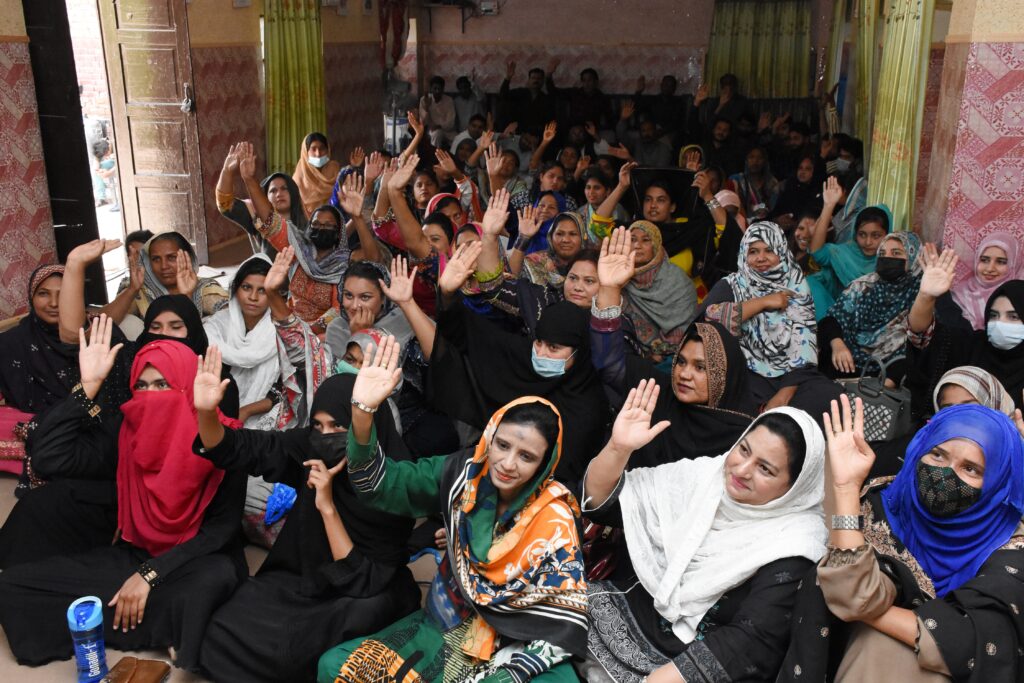
To add fuel to the fire, open talks on reproductive health and family planning are considered taboos in an orthodox society like Pakistan, especially because of the sociocultural norms and criticism from religious scholars, making all the more difficult for women in Pakistan to seek out necessary information or advice about contraceptives and pregnancy.
Another point of concern becomes the economic challenges faced by these women, making it difficult for them to avail of these services and purchase contraceptives. As a result, women ultimately fall victim to unwanted births, life-threatening abortions and sexually transmitted diseases. In the whole process, youth get affected as well, as the elderly don’t give them autonomy in sexual education, which leads them to look through reproductive rights on the internet, which generally lacks authentic information, hence they indulge in life-threatening practices. This whole structure since my early childhood was bothersome for me.
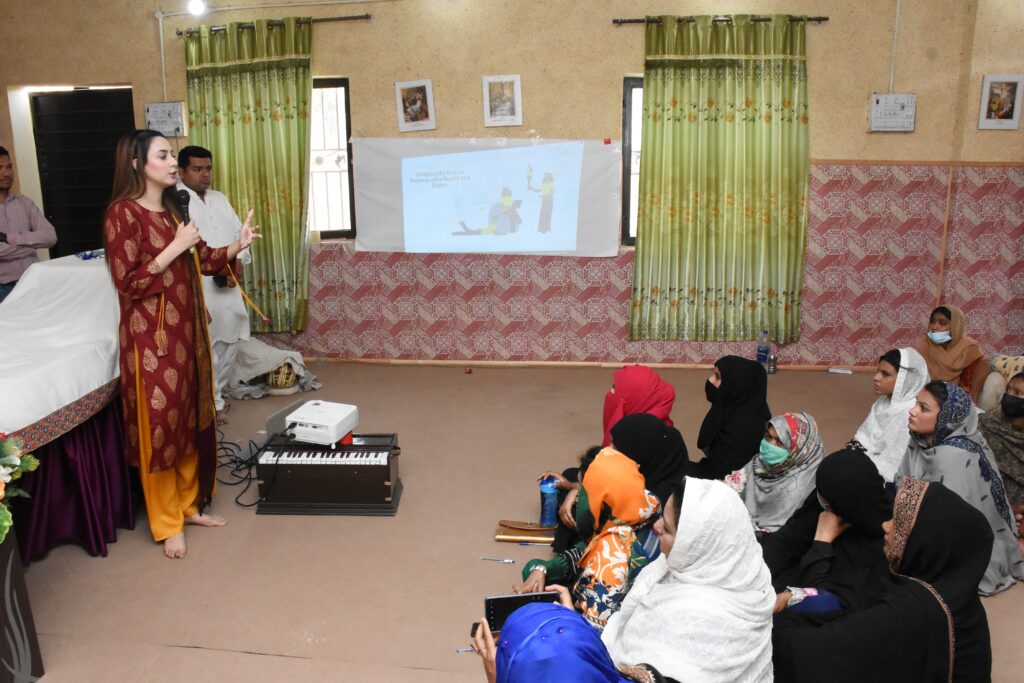
Considering these scenarios, and the fact that the current world runs on mobile phones and active internet service, I came up with the idea to bridge the gap by creating a free technological platform for community members to have access to relevant information on reproductive health and family planning services. Hence, I developed Bridge the GAP (Giving Access to Planning), a mobile and web application to disseminate information and help eradicate the stigmas and myths surrounding sexual and reproduction health and rights (SRHR) and family planning in Pakistan and empower women by making them aware of their body and health rights.
The application comprises several components; authentic information on SRHR, HIV/STDs, Life Skilled Based Education (LSBE) for personal and social development, geo-tags to all the existing family planning clinics specifically in the Punjab province of Pakistan, contraceptives methods for both men and women and “talk to a psychologist” in which the couples can have free counselling sessions on family planning through our onboard psychologists.
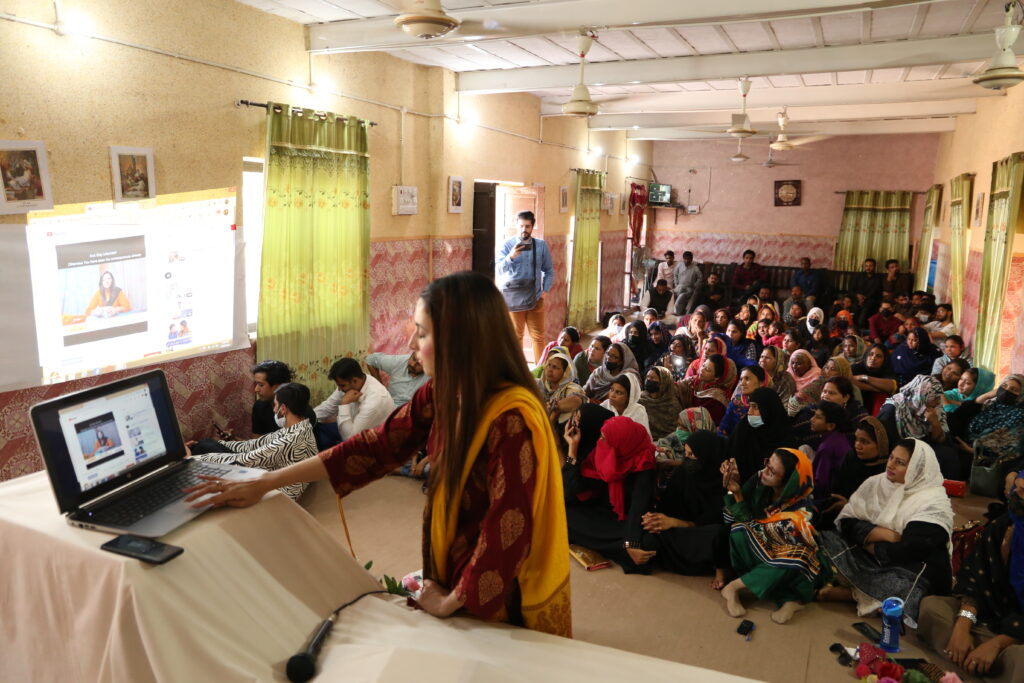
While developing the application, I also wanted to focus on the visually impaired group, who are often ignored in our society. Therefore, we added an audio feature for them to have access to the whole content. Lastly, we have our e-shop where the women and community members can buy contraceptives, menstrual and other hygienic products.
Besides the application, my project MASHAL actively engages the women and youth in the community and open mic sessions, as well as spreads awareness on the cause through social media outreach programs. Women are the backbone of any society, and without our women coming to the forefront, our nation’s progress will keep slackening. That is exactly why I hope to make an impact on the community and create a peaceful environment for women by empowering them through my project, and help combat the climate and SRHR challenges through sustainable measures.
_________________________________________________
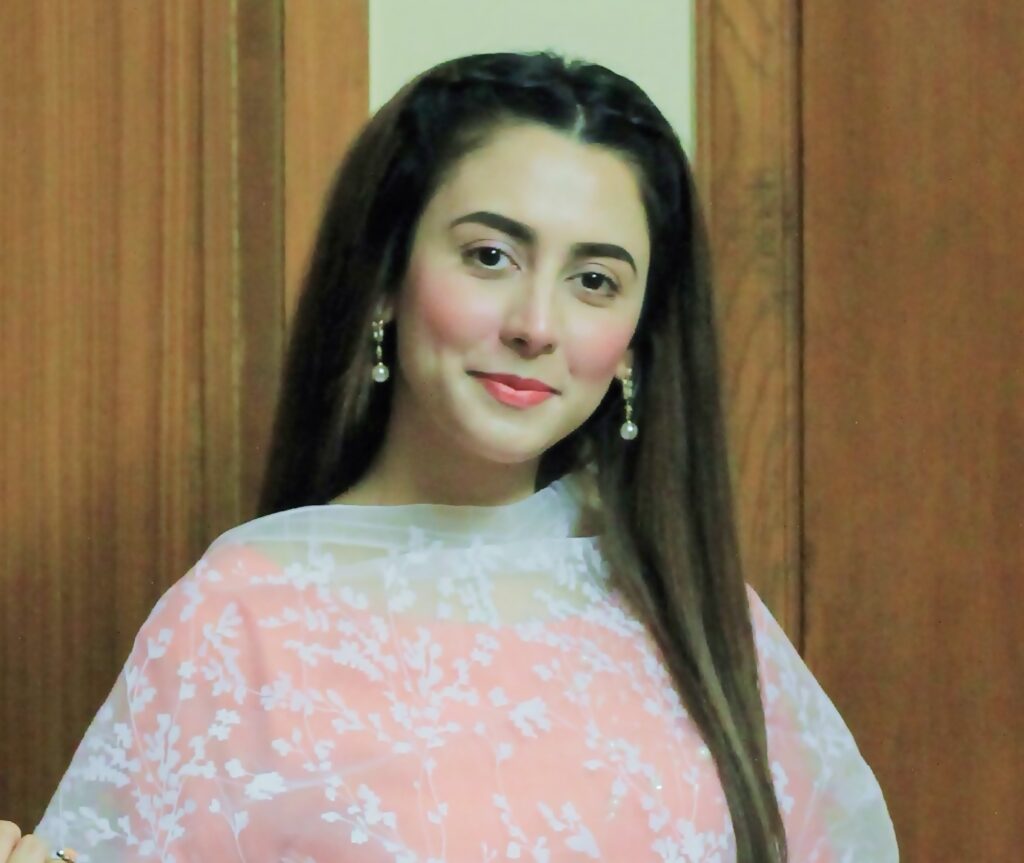
Laraib Abid is a lecturer, activist, trainer, entrepreneur and founder of MASHAL. She is the focal person for SRHR in the Prime Minister National Youth Council working on digital roll-out sessions & policy-making focusing on SRHR.
Laraib is Gates Institute 120under40 Family Planning leader and has developed Pakistan’s First Mobile Application of Bridge The GAP, which the World Health Organization has recognised and selected for their learning portal.

